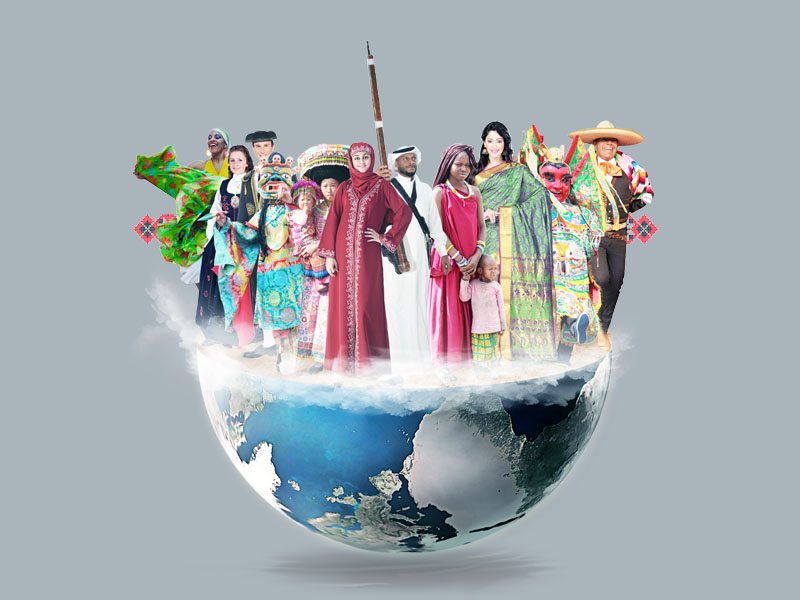Folk heritage: Bahrain’s message to the world
Issue 36

In 1979, Doha was preparing to host the sixth Conference of Arab Gulf Information Ministers. Following the directives of Dr. Isa bin Ghanem Al Kuwari, who was then the Minister of Information, I was working on the establishment of the Department of Studies and Research at the Directorate of Culture and Arts.
At that time, Qatar’s Ministry of Information – the late Sudanese writer Tayeb Salih was then Director General – became interested in my proposal to unify the Arab Gulf countries’ efforts to collect, record and document folklore material and to establish a specialised centre in Doha. The proposal was presented, discussed and approved at the conference.
While I was busy establishing this centre, I realised we needed to tell the world about this significant undertaking to protect the region’s folklore. We launched a major media campaign.
The campaign was a great success, and news of the centre reached the Smithsonian Institution. Managed and financed by the United States, the Smithsonian is the world’s largest institution dedicated to tangible and intangible cultural heritage. Most of its facilities are located in Washington, DC, and the rest are in other cities in the US. The Institution contacted the Gulf Folklore Centre, which was still under construction, and offered to delegate and pay 21 experts to help with the collection and documentation processes. I decided not to accept the offer because I believed that local cultural heritage should be collected and recorded by local specialists. Now – almost forty years later – I am not sure whether I made the right decision given what happened to the centre.
The late Alexander Veigl sent a letter congratulating me on the establishment of the Gulf centre and inviting me to take part in the establishment of a global organisation for folklore in Modling, Austria. This was my first contact with the founder of the International Organization of Folk Art (IOV) and his colleagues from several European countries, and I became an acting member of the IOV. It was important to open a branch of the IOV in Bahrain, and to have members who helped to collect and preserve folk culture. We established a branch that is now entering a new phase, thanks to its new leaders.
I have represented Bahrain at nearly all the IOV’s General Assemblies and conferences around the world, either alone or with members of Bahrain’s branch.
In the early 1980s, I became the head of the IOV’s department of financial resources development, and then the head of the scientific activities and programs committee with the late Nicholes Sariss, a Greek professor. In 2007, I was elected as the IOV’s Regional Executive Secretary for the Middle East and North Africa. The IOV established its regional headquarters in Bahrain. We launched the Folk Culture Journal and the IOV agreed to distribute issues to over 160 countries. We now provide English and French translations of the abstracts, which helps to promote the Journal. In 2012, I was elected as IOV’s Vice President for Publications.
Recently, Bahrain was awarded the Presidency of the IOV for 2017-2020; China and Philippine were the other candidate countries. This reflects Bahrain’s international standing and cultural reputation. It is also an acknowledgment of the success of individual efforts on behalf of Bahrain, and of Bahrain’s openness to culture, intellectual advancement and art. Bahrain is a melting pot of different peoples, and a meeting point for a variety of civilisations and cultures.
The EU countries supported Bahrain’s nomination for the presidency of the organisation at this critical time; after almost forty years, the IOV needs to revisit the way it operates and to inject fresh blood and new ways of thinking. The IOV needs a different management style in order to operate in the international arena as an NGO under the umbrella of UNESCO, to protect intangible cultural heritage, and to develop visions and ideas related to heritage.
The presidency of an international organisation comprised of individuals and groups of scientists and researchers from 136 countries with different technical and scientific approaches and finances will no doubt be a challenge. Bahrain welcomes this challenge and, with Allah’s support, it will prove to be an outstanding success.
Ali Abdullah Khalifa
Editor in Chief







































































